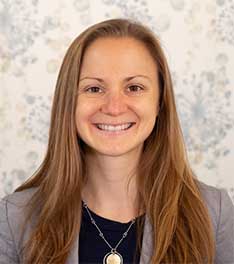
Solving for Carbon Neutrality at MIT Presentation: Optimal Technology Selection to Meet MIT's Carbon Neutrality Goals

 Teams of students work through out the semester to study and develop these solutions, presenting a final project at the culmination of the course. One such presentation, Optimal Technology Selection to Meet MIT's Carbon Neutrality Goals by Paige Wyler, Felipe Quintella Correia, Tamir Peleg, and Yu Huang can be viewed in the Resource Library.
Teams of students work through out the semester to study and develop these solutions, presenting a final project at the culmination of the course. One such presentation, Optimal Technology Selection to Meet MIT's Carbon Neutrality Goals by Paige Wyler, Felipe Quintella Correia, Tamir Peleg, and Yu Huang can be viewed in the Resource Library.
Paige Wyler SM '22, MBRA '22 shares insight into this final presentation and her experience with the course.
What prompted you to take this course?
I’ve done a variety of sustainability work in the past. My thesis work was with [electrical vehicle company] Rivian where I was working on how to integrate carbon decision making into operational processes. I also worked at an agricultural tech company with the goal to get farmers to adopt sustainable processes to sequester carbon in the soil that could then be sold as carbon credits. I had all these different perspectives, so I thought it would be interesting to explore these types of things from an MIT lens and from an academic view. My engineering degree is in operations research, so I saw opportunities to apply some of these things to a different type of problem and bring in more quantitative decision making in that area.
What lessons, findings, or relationships will you take with you from this course?
A lot my classmates and I explored opportunities to get to carbon neutral and the answer kept coming back to things like nuclear or technologies that might not exist yet. That was a huge lesson—a lot more needs to be developed to get to an answer. The answer is not out there today based on the technology available. That’s a big push for innovation—but how do you drive technologies that have a clearer pathway?
What was it like working on projects that could apply to the very campus you were on as opposed to a hypothetical scenario?
I always prefer things that are a bit more applied or impactful as opposed to theoretical, so I liked the aspect of trying to solve for carbon neutrality. A semester is almost too short for the challenge but being able to influence how MIT is thinking about evolving the strategy was interesting. It was also interesting to learn what MIT and other schools are or are not doing especially compared to what companies that are or are not doing—it makes everything much more tangible. You’re solving actual challenges that exist, and even if they’re not engineering challenges and are social or political challenges that exists that’s an interesting dimension to these types of problems.

